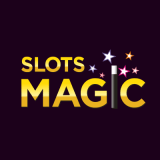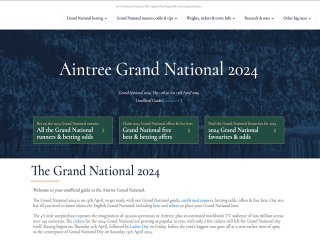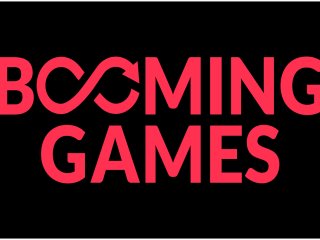iGaming Ontario Review
By Alex Smith Mar 10, 2023
Casinomeister's Verdict
This is a newly launched jurisdiction, and at the moment we have not a clue as to how sufficient or experienced they are in dealing with player copmplaints. Time will tell, and we wish them the best.
Brand new untested jurisdiction
 Pros
Pros
Seems pretty legit
 Cons
Cons
Totally untested
They have no track record on player complaints
Big changes have occurred in Ontario with the government officially launching a new regulated online gaming market in 2022 – and this allows players in Ontario to play at online casinos and bet at sports betting websites legally.
We will be looking at what this new change entails on this page and how it’s set to affect both players and operators.
So, What’s Going On?
As of April 4th, 2022, online gambling is legal in Ontario, Canada. While, in the past, many Ontarians played at online casinos located offshore, this was considered to be a grey area.
It wasn’t illegal for players to use these offshore casinos. Still, technically the online gambling operators accepting Ontarian players were breaking the law – even if they were outside of Canada.
This all changed on April 4th, 2022, with new rules and regulations brought in by the federal government in conjunction with the Alcohol and Gaming Commission.
Private gaming operators who have registered with the AGCO and received approval from the iGO can begin offering players online casino games and sports betting facilities. Here’s a press release from iGaming Ontario – the regulator responsible for managing and issuing online gambling licenses.
“Consumers can be assured that companies who successfully enter the new Ontario market will have met rigorous game and operator integrity, fairness, player protection, and social responsibility standards, allowing all players to play with confidence,” says Martha Otton iGO Executive Director. “Prevention of underage access, ensuring compliance with applicable laws including anti-money laundering rules and regulations, and measures to enable more responsible gambling are just a few of the assurances consumers can expect in the new market as of April 4th.”
“Today, most internet gaming by Ontarians takes place on websites not conducted and managed by the province,” states Otton. “Our new internet gaming market will give consumers enhanced entertainment choice, support the growth of a new, legal market and generate revenue that can help fund programs and services that benefit all of us.”
What Is iGaming Ontario?
iGaming Ontario (iGO) is a subsidiary of the Alcohol and Gaming Commission (AGCO), and they’re responsible for regulating all forms of the online casino and online gambling market in Ontario.
They’re the regulator – like we see from the UK’s Gambling Commission and the Maltese Gaming Authority – and they’re responsible for issuing online gambling licenses, regulating those to whom they’ve issued a license, and ensuring any issues and complaints are handled.
They’re also responsible for working directly with the federal government to discuss and, where relevant, modify online gambling laws and regulations. They state that they’ll be taking a ‘very active’ position in Ontario’s continued online gaming regulation.
What is a Regulated iGaming Market?
While every country and jurisdiction has a slightly different definition of regulation, generally speaking, a regulated iGaming market refers to a centralized (usually a government-appointed body) that’s responsible for regulating all forms of online gaming in that country, and state, or region.
This online gambling regulator is responsible for issuing online gambling licenses, working with the government to discuss/modify online gambling legislation, and ensuring that players can gamble safely – without the online gambling operators taking advantage of the players.
Some online gambling operators are perceived as more reputable than others; for example, the UK’s Gambling Commission (while often accused of taking their responsibilities TOO far) is widely regarded as the world’s most reputable online gambling regulator. They don’t hesitate to take action against firms that are failing to adhere to the terms and conditions of their online gaming license, and they’re incredibly player-focused.
Then, you’ve got online gambling regulators like Curacao. They award online gambling licenses like pieces of candy and – for the most part – take little to no action against operators who’re operating in a rogue manner – sometimes even illegally.
For example, numerous websites licensed in Curacao are running fake or pirated versions of games – and the regulator hasn’t (visibly) taken action against any of these rogue operators.
iGaming Ontario will be the online gambling regulator in Ontario. So it’s their responsibility to carry out all tasks surrounding regulation regarding online casino websites and sports betting platforms in the province.
Who are the Alcohol and Gaming Commission
The Alcohol and Gaming Commission (AGCO) is an Ontario provincial regulatory agency that reports directly to the Ministry of the Attorney General (MAG). The AGCO is responsible for regulating Ontario’s alcohol, gaming, horse racing, cannabis retail, and online gambling sectors.
The AGCO was first established in 1998 under the “Alcohol, Cannabis and Gaming Regulations and Public Protection Act,” replacing the previous regulator, the Liquor License Board of Ontario and the Gaming Control Commission.
What Websites Are Currently Regulated?
iGaming Ontario maintains a current and up-to-date list of all currently regulated online casino websites and sports betting sites. This website can be found here.
At the time of writing, some big-name brands have already received approval to operate in Ontario; this includes 888, FanDuel, Bet365, Rush Street Interactive, Rivalry, theScore, and PointsBet.
When it comes to game developers and software providers, suppliers including High 5 Games, Play’n Go and Inspired Entertainment have already been approved to work with licensed operators.
The new Ontario online gambling laws have only recently changed, and this list will be updated as casinos meet the standard. Because of this, you may find that iGaming Ontario has set up a new webpage – so it’s worth keeping an eye on things as you’ll be able to find more up-to-date lists of the available websites where you can play casino games at their website.
What Online Gambling Activities Are Covered?
According to iGaming Ontario, players in Ontario “can now play internet casino games and place sports bets on sites offered by iGaming companies (called operators) that are fully registered and approved.”
Let’s look at both of these sectors in more depth – and see what operators are saying.
Casino Games
Online casino games are more popular than ever before. While players from Ontario had long been playing them, all of the time, they had to do so at an offshore online gaming site. Now, casino games are legal in Ontario – and this means internet gaming is opening up to all Ontarians.
While it’s still not entirely clear what the online gaming industry will look like in Ontario, it’s clear that many online gambling operators and software providers have already started gaining approval to accept players and offer their games to Ontario.
For example, one game developer – High 5 Games – revealed that they had already been granted a ‘supplier license’ from Ontario’s Alcohol and Gaming Commission. They also released the following statement:
“Big things are happening in Ontario, and we couldn’t be more excited to be a major part of the newly regulated iGaming market. For several decades, players in Ontario have been enjoying our games at land-based casinos across the province. We can’t wait to bring those games online and entertain players in a whole new environment.”
We expect most of the major online gaming developers to follow suit. This means Ontarians will be able to enjoy everything from classic slot machines and casino table games to live dealer games, jackpot slot machines – and even virtual sports like horse racing!
Sports Betting
Single event sports betting has been legal in Canada since 2021. Single events sports betting was surprising to many – and it didn’t make much sense that players couldn’t wager money on multiple events at once.
The Ontario Lottery and Gaming Corp offered these single sporting events through its Proline+ sportsbook.
However, as of Monday, Ontarians can do away with single-event sports betting – and it’s now possible to enjoy sports betting in any way you want. There are no restrictions on the type of sports betting event that punters can place wagers on – which means horse racing, football, greyhound racing – they’re all fair game.
It’s not immediately clear how many online gambling operators that are already up and running will be offering sports betting facilities. However, the Alcohol and Gaming Commission of Ontario states that many more online gambling operators have registered but who haven’t yet secured agreements with iGaming Ontario.
However, the operators already offering sports betting in Ontario appear to be ready to accept new players. For example, theScore Bet, a subsidiary of Penn National Gaming Inc, stated:
“From the outset, the Levy family and theScore team played a meaningful role in championing the legalization of single-event sports betting and creating Ontario’s framework. With its large user base, superior technology, and mobile gaming expertise, theScore Bet is in a strong position, and I’m highly encouraged about the opportunity ahead.”
“(Monday) is momentous as we finally can participate in a regulated gaming market in our home country,” he said. “We applaud the Ontario government for its leadership in creating and implementing a safe, consumer-friendly, and commercially minded market.”
Sports betting will become significantly more popular as time goes on, and more companies can receive approval from iGaming Ontario.
Who Can Play at iGO-Regulated Websites?
The iGaming Ontario website states that a player’s residency is NOT a factor in whether or not they can play on websites that have been registered and authorized by the iGO. The only requirement is that players must be physically located INSIDE Ontario.
This means that non-Canadians and even those who live outside of Ontario can indeed join and play at Ontario-licensed websites – provided they’re physically present in Ontario when they’re placing any real money wagers.
The iGO’s website states that players can register and manage their account physically outside Ontario, including signing up, making deposits and withdrawals, and logging in. However, wagers may only be placed when a player is physically in Ontario.
Why You Should Play on a Regulated Site
iGaming Ontario is obvious that playing on one of the casinos they regulate comes with a wide variety of benefits – and the first significant benefit is that your deposits are protected. This is similar to what we’ve seen from other major online gambling operators like the UK’s Gambling Commission. Online casinos licensed by iGaming Ontario are required to store players’ deposits securely – and this means they have to be ring-fenced.
Withdrawals are also closely monitored at licensed casinos – although it’s unclear exactly what this means. All iGaming Ontario states are that ‘your winnings are paid out when showcasing the benefits of playing at a regulated operator.
Other benefits they state include ‘your personal information and data is secure,’ ‘gameplay has fair, competitive odds,’ ‘you have access to responsible gambling resources to keep your experience fun, and ‘you know there is a legal business behind the site.’
While seasoned, experienced gamblers will understand these benefits, it’s unclear whether this language will persuade the general public. iGaming Ontario may have to work harder to convince locals to play at regulated casinos aside from those located elsewhere in the world that still accept players from Ontario.
Why You Should Avoid Unregulated Operators
According to iGaming Ontario, players should avoid unlicensed online gambling regulators for several reasons. First and foremost, there’s no guarantee that deposits are securely stored. Online gambling operators that aren’t regulated in Ontario don’t have to stick to strict rules surrounding the protection of player funds.
The commission also warns that players have no guarantee of being paid out; or, when an unlicensed site does payout, they may ‘delay’ payouts. Thirdly, iGaming Ontario states that personal information could be exposed to third parties or public without your consent. This is likely down to how iGaming Ontario has strict rules surrounding data protection.
From glancing at the iGaming Ontario website, it’s clear that they’re very against players playing at non-iGaming Ontario regulated casinos; whether this will be enough to keep players from gambling at online casinos licensed in other jurisdictions remains to be seen.
Are There Any Controversies Surrounding The New Regulator?
As with anything in life, the new, regulated Ontario gaming scene has caused some controversies – and below, we’ll look at two of the main issues that some industry experts have brought up.
Taxes
The CEO of Great Canadian Gaming – Tony Rodio – has stated that he believes it’s unfair that new iGaming operators will only be taxed 20% of their earnings. This is in contrast to the 55% of land-based casinos and brick-and-mortar casinos that are taxed.
Speaking, he said: “This is the only state or province in North America where the iGaming operators have a tax advantage. People that were betting offshore historically were not going to be walking into a casino, whether this regulation came or not. The lower tax rate for licensed online operators also allows them to stay competitive with offshore operators, which pay nothing in taxes.”
Rodio worries that the fact that online casinos can save so much on taxes compared to land-based casinos will allow them to spend significantly more money on marketing. This, he says, will also allow online gaming operators to specifically target players AGAINST playing at land-based casinos – which could cripple the industry.
Problematic Gambling
While the legalization of online gambling in Ontario has, for the most part, been positively received – both by players and online gambling operators – there have been questions raised surrounding problematic gambling. For example, some online gambling experts have vocally raised concerns about there being even more online casinos and internet gaming sites available to Ontarians.
Chanel Larche, an associate researcher with the Center of Excellence in responsible gambling at the University of Gibraltar, stated in a recent interview that an increase in online gambling accessibility to players should also be accompanied by a significant increase in resources that aim to curb the amount of time that users spend gambling online.
Larche said: “There needs to be more of an active role in how [operators] choose to disclose or present those services and tools to the player.”
Nigel Turner, an expert in gambling addiction at The Center of Addiction and Mental Health (CAMH), agreed, saying that players need to have more options – and more information – when it comes to responsible gambling.
He said: “Anytime you increase the availability of addictive behaviour like gambling or alcohol or drugs, there’s a potential for more people to develop problems associated with that addictive behaviour. People have a really bad understanding of random chance. Winning is possible. But in the long run, the chances of successfully coming out ahead … are really, really pathetic. And that means that it’s not a good investment.”
It’s likely we’ll see similar measures used by other online gambling regulators – like the UK’s Gambling Commission – brought into force in the near future. These measures include giving players the ability to set time limits on how much time they can spend gambling.
However, some online gambling operators who’re already lined up to operate in Ontario have stated that they’ve already been working to implement such tools. For example, FanDuel – one of the US’ biggest online casinos, stated that it has been working with the Responsible Gambling Council in Canada to develop ‘appropriate protocols’ to help ensure that players are protected.
Speaking to CBC News, FanDuel stated: “We’ll be doing research and investing in partnerships to ensure that we have all the tools necessary to help anyone who needs it as they participate with us,”
What are the Steps for Online Gambling Operators to Receive Approval?
The iGO states that all online gambling operators should expect to wait a minimum of 90 days to complete the steps required to become registered by the AGCO and to ‘execute an Operating Agreement’ with the iGO.
There are a number of steps involved with applying for a license – and the first is to sign a nondisclosure agreement with the iGO. Secondly, online gambling operators need to execute a letter of agreement with iGO, and next they will need to set up and configure access to iGO’s secure data and information communications channels.
Step four requires online gambling operators to complete iGO’s anti-money laundering information submission, and step five requires online gambling operators to complete the financial information submissions. These are all legal and technical-based requirements.
Steps 6 and 7 require operators to participate in operator systems and data readiness cycles with iGO and execute the operation agreement respectively.
There are a number of other criteria – and while we’re not going to go into them, we will take a look at one; ensuring that games and critical gaming systems are “Independent Testing Laboratory (ITL) certified.”
iGaming Ontario states that “Any games and supporting critical gaming systems must be certified by an ITL that is registered with the AGCO before being made available for play in Ontario.
Operators must ensure that their games and supporting critical gaming systems are certified by a registered ITL and ensure your suppliers have done so as well.”
As we’ve seen from other online gambling regulators, iGaming Ontario has approved multiple ITLs to certify casino games and betting systems – and this means that operators have a degree of choice when it comes to choosing who will certify their games.
Games MUST receive certification before they can be offered to players – and there are robust and in-depth technical standards that must be followed before players are able to place any real-money wagers on them.
iGaming Ontario’s Self-Exclusion Database
One of the biggest responsible gambling breakthroughs in recent years was the development of GAMSTOP by the UK’s Gambling Commission. This centralized system allows a player to enter into a global self-exclusion agreement. This means that all online gambling operators that hold a UK license are linked to this scheme – and when a new customer signs up, their information is automatically matched against the GAMSTOP database.
Effectively, this allows players to enter into a self-exclusion agreement once, instantly blocking themselves from being able to play at all UK-licensed casinos – and since the creation of GAMSTOP, we’ve started to see other online gambling regulators following suit.
At the time of this piece, iGaming Ontario does NOT manage a centralized and coordinated self-exclusion program. However, their website states: “Such a system will be implemented at a later date, and requirements will be developed in the coming months.”
We should also note that operators ARE required to have their self-exclusion program in place, which means the iGO’s responsible gambling requirements.







 Top 5 casinos
Top 5 casinos 



















